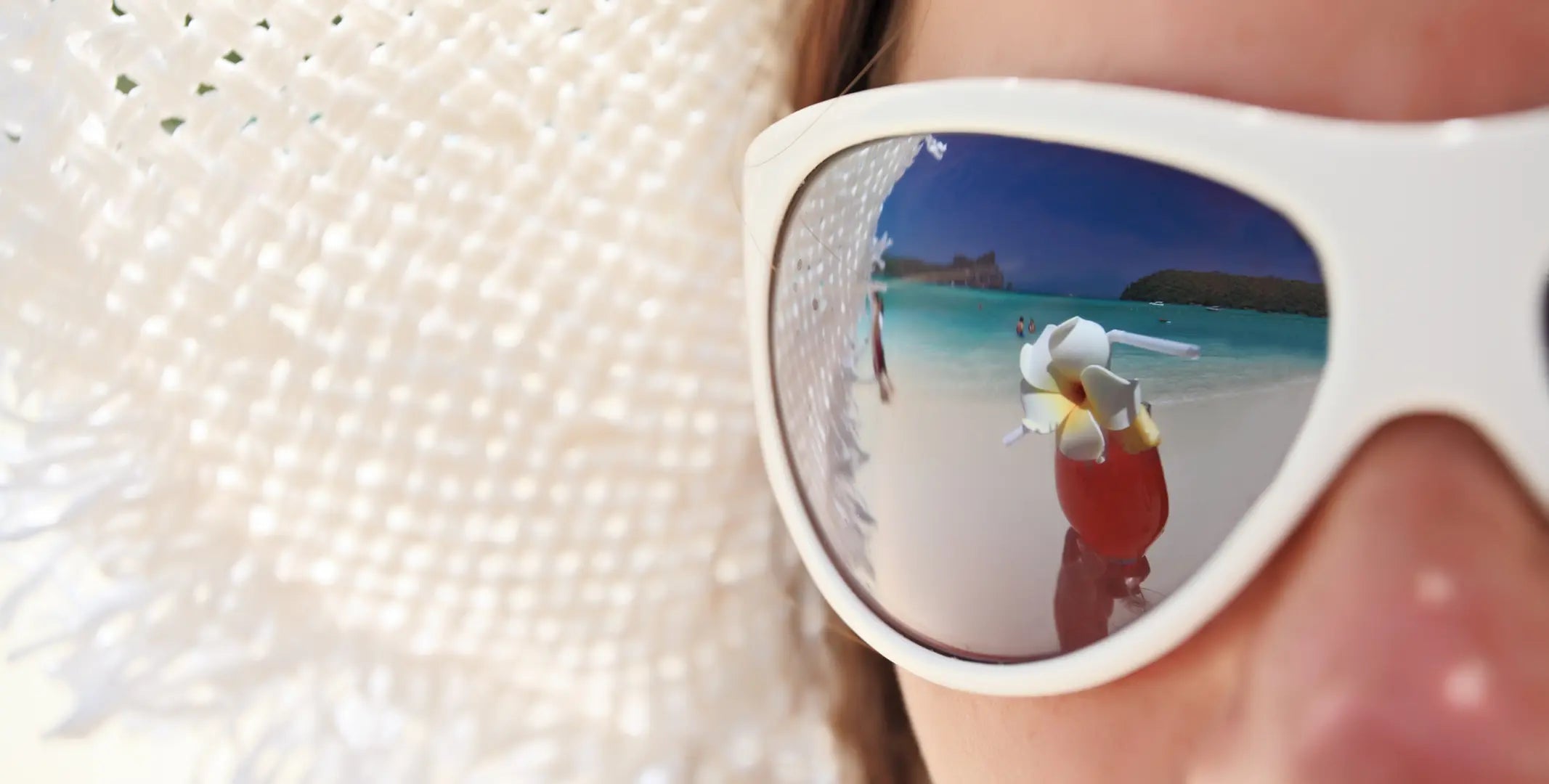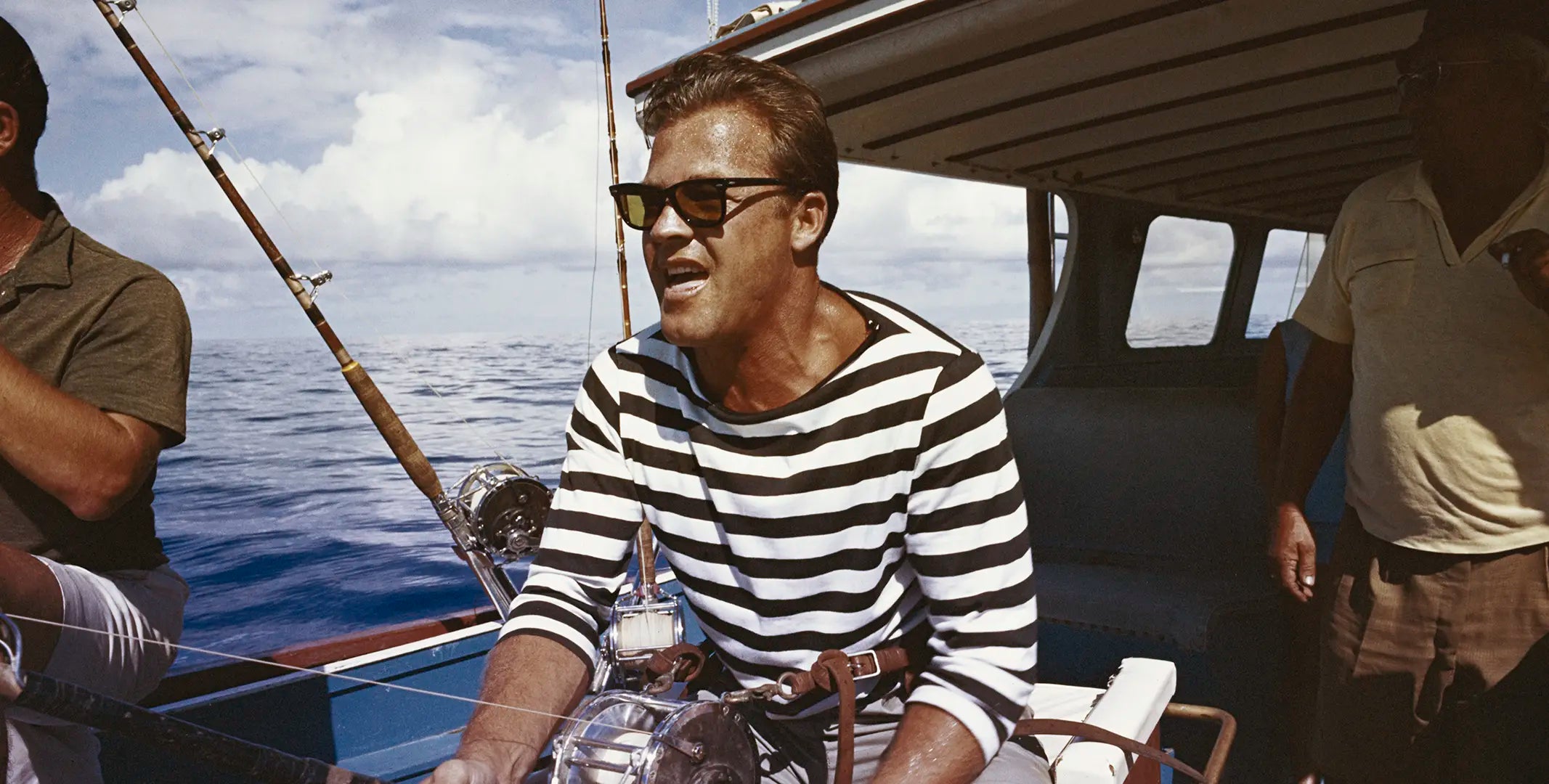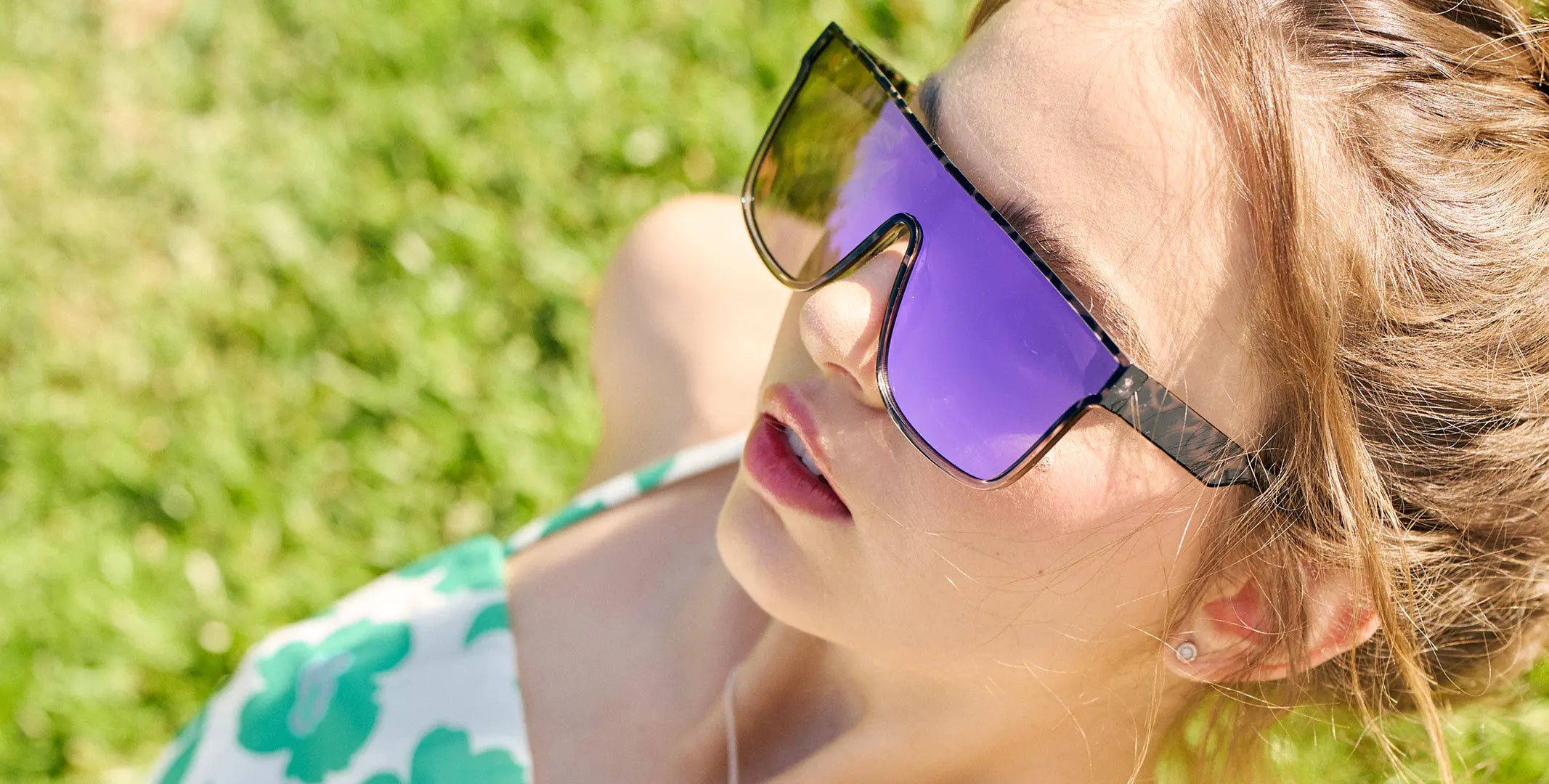Do Sunglasses Need to be Polarized?

Everyone knows that polarized sunglasses are a good thing. After all, many of the finest sunglasses for sale online or in your favorite shop sport the "polarized" label. You may have friends who swear by polarized shades as an absolute must-have. But are they?
Polarized sunglasses were designed to help reduce glare, and can be essential in many different situations. Drivers and athletes, in particular, benefit from the unique glare-reducing effect that polarized shades have to offer. But if you're wondering whether all your sunglasses need to be polarized, we're here to answer it with all the information you need to make the right sunglasses choice for you.
What is "Polarized" for Sunglasses?
"Polarized" when talking about sunglasses indicates how the shades handle directional light. Polarized sunglasses block the super-bright glare that occurs when light - especially sunlight - bounces off a shiny, flat surface. The back of a car window, the surface of a lake, or a fresh layer of snow all create an intense glare that can be blinding without proper protection. Polarized shades minimize that glare using control over directional light.
The Science of Polarization
Let's dive into the science for a moment. Sunlight travels in waves, and those light waves are spread out, which is why it's warm and gentle except when you look directly at the sun. However, after light bounces off a flat surface, it's all going in one sharp direction, which is what creates glare. That glare typically comes in at a horizontal angle.
Polarization is a chemical coating on shades that creates microscopic vertical lines across the lens. This allows in most light, but blocks a greater percentage of light coming in at a horizontal - ie: glare.
This is how polarized shades reduce glare, which can keep you from getting blinded in situations where glare can be unpleasant or dangerous, like driving home with the sun bouncing off the other cars around you.
Benefits of Polarized Sunglasses
While the primary purpose is to protect your eyes from glare, polarized sunglasses provide some interesting additional benefits, as well.
- Prevent Glare Blindness
- The polarization effect can keep you from being effectively blinded by glare so that you can see more clearly in bright conditions.
- Protect from Eyestrain and Headaches
- Glare makes your eyes work harder to see, which can cause both eyestrain and headaches. Polarized sunglasses can help you avoid headaches if these are common for you on bright and sunny days.
- Improved Color Perception
- Many people experience color slightly differently when wearing polarized shades. They can help you see colors more clearly through reflected light, like seeing the rocks at the bottom of a clear lake in the noon sunshine.
When to Wear Polarized Sunglasses
There are many situations where polarized shades are invaluable. Any time you are likely to be exposed to glare from the sun bouncing off a flat surface, polarization can save your eyes and even keep you safe.
-
Daytime Driving
The single most important time to wear polarized sunglasses is when you are driving. There are several times of day when the sun will bounce off of other cars, a wet road, or nearby buildings and create blinding glare. However, being able to see clearly and operate the vehicle with a clear head are essential to your safety - and the safety of everyone on the road. Polarization is used to help drivers see through glare and operate vehicles safely during the day.
-
Waterside Activities
Water is another culprit for creating glare with a too-bright reflection of sunlight. Whether you are chilling on the beach, lifeguarding, or participating in water sports, polarized sunglasses can help you maintain clear vision even when the sun is reflecting directly into your eyes.
-
Sports Activities
Many athletes rely on polarized sunglasses to ensure that their vision remains sharp and accurate just in case of glare. You can't always control whether something near your sports field or practice area will reflect sunlight in exactly the wrong way, and athletes can't afford to be distracted. So polarization helps to prevent glare-related problems.
-
In the Snow
Lastly, polarized sunglasses are often used to help with snow-blindness - or glare so bright off of snow that it's hard to see. If you live or visit somewhere snowy, having polarized shades can help you see clearly when the sun and the snow glare are brightest.
When Don't You Need to Wear Polarized Shades?
Of course, you don't need polarization all the time. If you're not at risk of experiencing glare, or if glare isn't a major concern, then polarization isn't as important.
-
Hiking in the Woods
Some outdoor activities have a very low risk of glare. For example, if you're going hiking , there's nothing to sharply reflect sunlight. Trees, soil, and underbrush soak up the sun rather than reflect it, so you won't have to worry about glare during many inland outdoor activities. Especially if you not near water or manmade reflective structurs.
-
Using LCD Devices
One quirk of polarized lenses is that they don't interact well with LCD screens. LCD screens display in soft horizontal light waves. This is why these screens seem unusually dark and hard to read if you wear polarized sunglasses. This has presented some conflict between modern vehicles with dash screens and drivers who rely on polarized sunglasses
-
Chilling in the Sun
Lastly, if you're not worried about glare, you don't need to worry about polarization one way or the other. If you're sunbathing in the backyard, chilling in the park, or just walking your dog around the neighborhood, you can wear polarized or non-polarized sunglasses with equal comfort.
Polarized Sunglasses Options from PopShady
If you're looking for a stylish new pair of polarized sunglasses for safe driving, summer activities, or winter snow events, PopShady's got you covered. Check out our awesome polarized collection for your new glare-protected look. Of course, if you want non-polarized sunglasses for those forest hikes and chill afternoons, you can find those, too. Find your favorite polarized and non-polarized sunglasses with PopShady.




